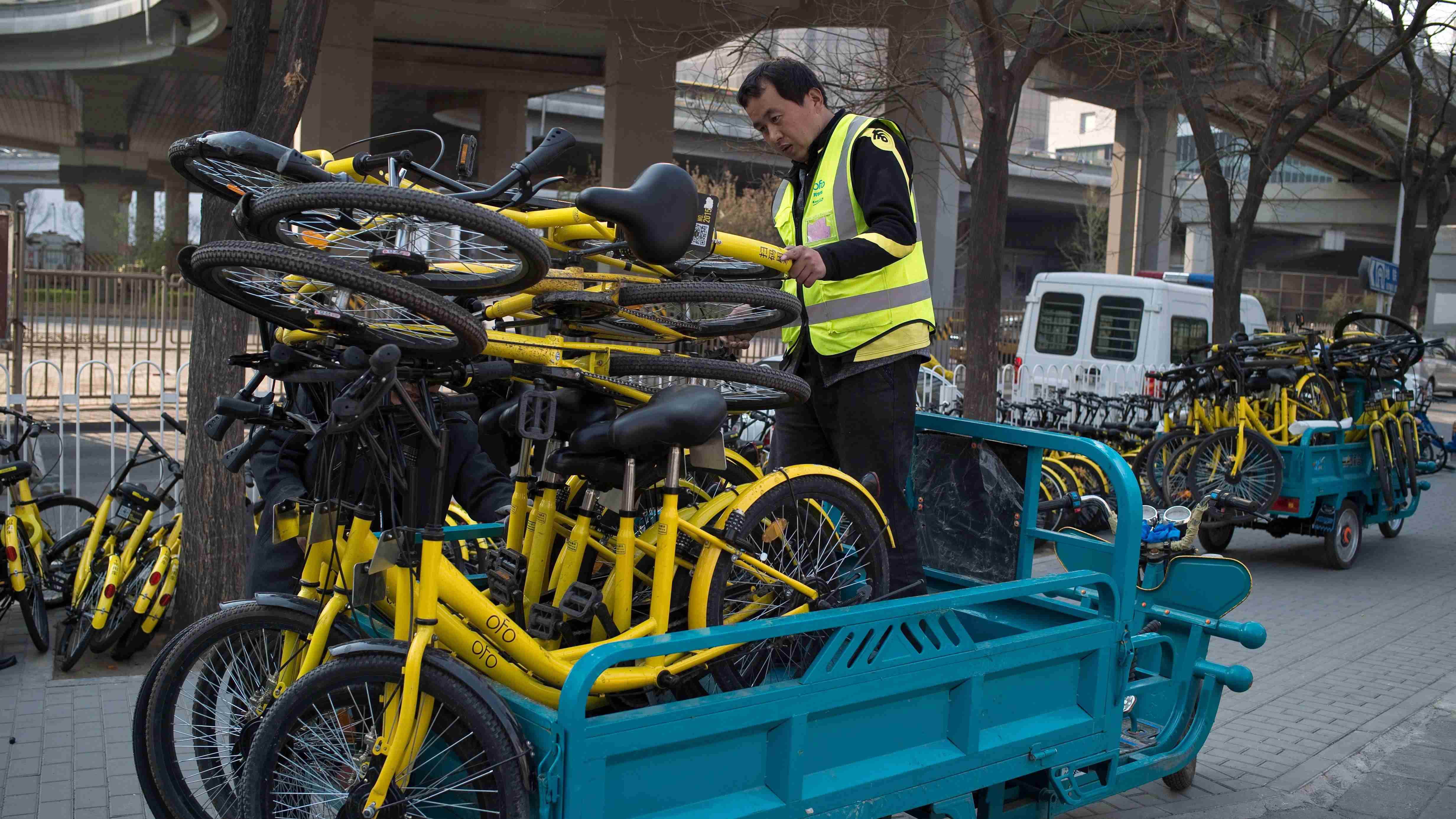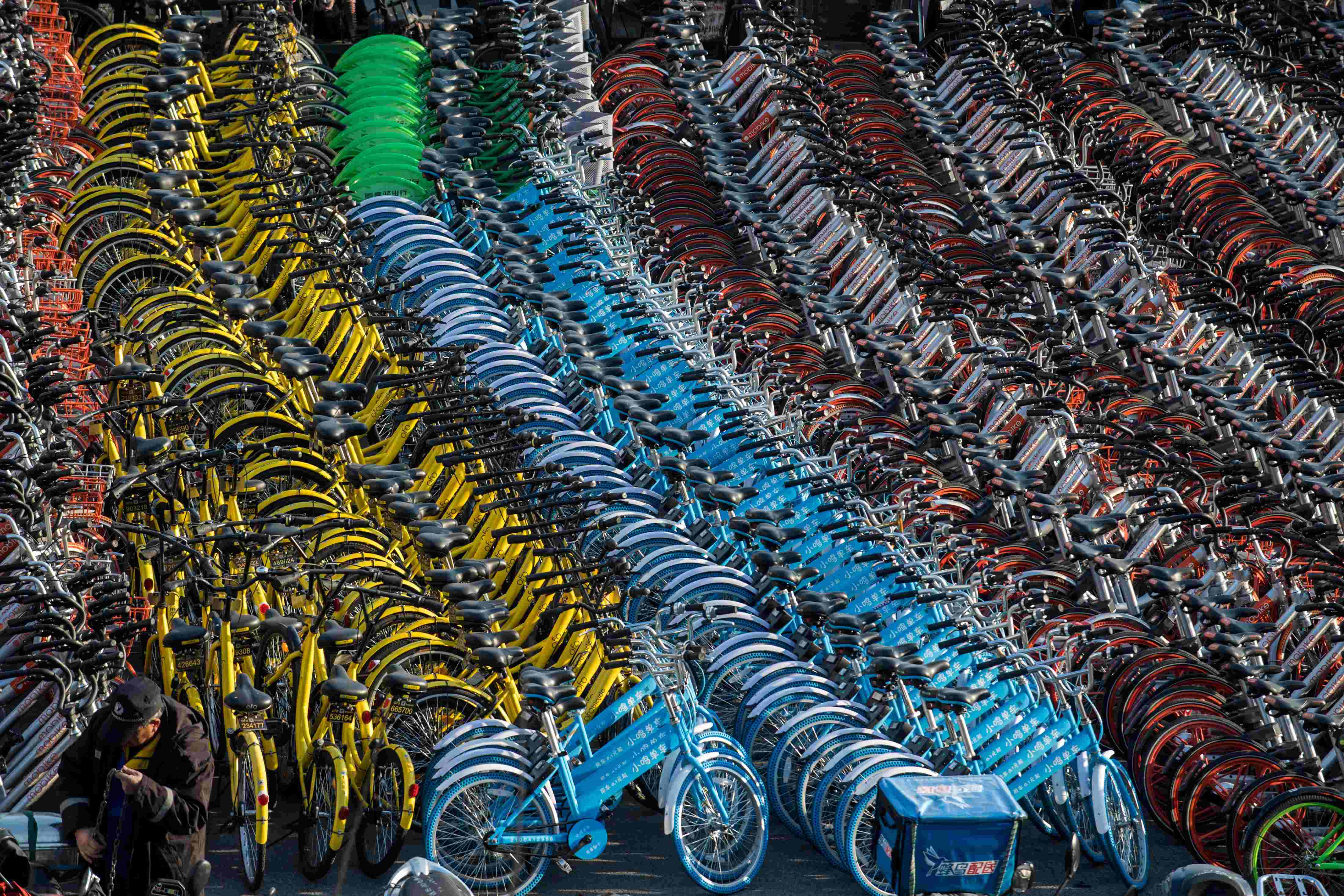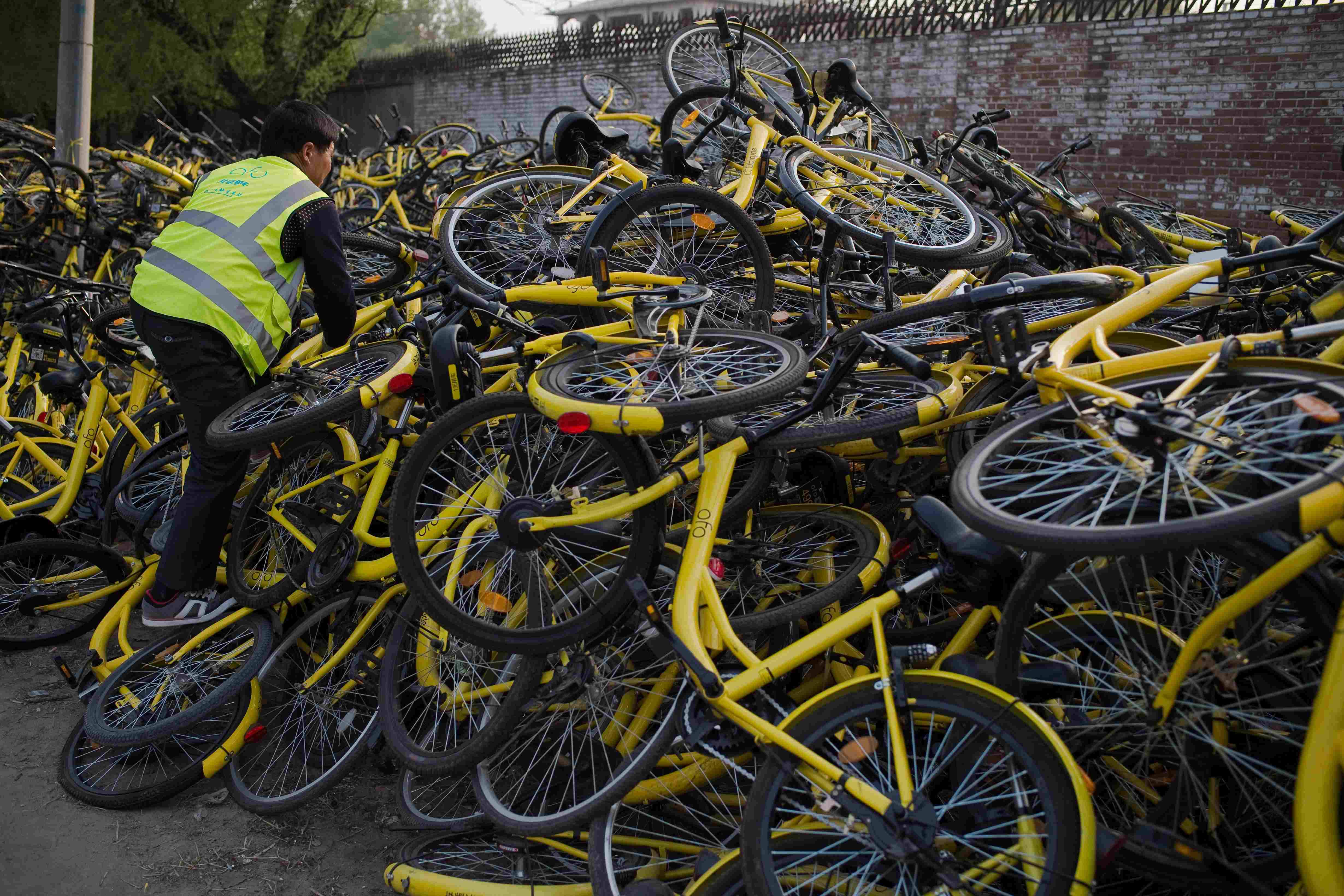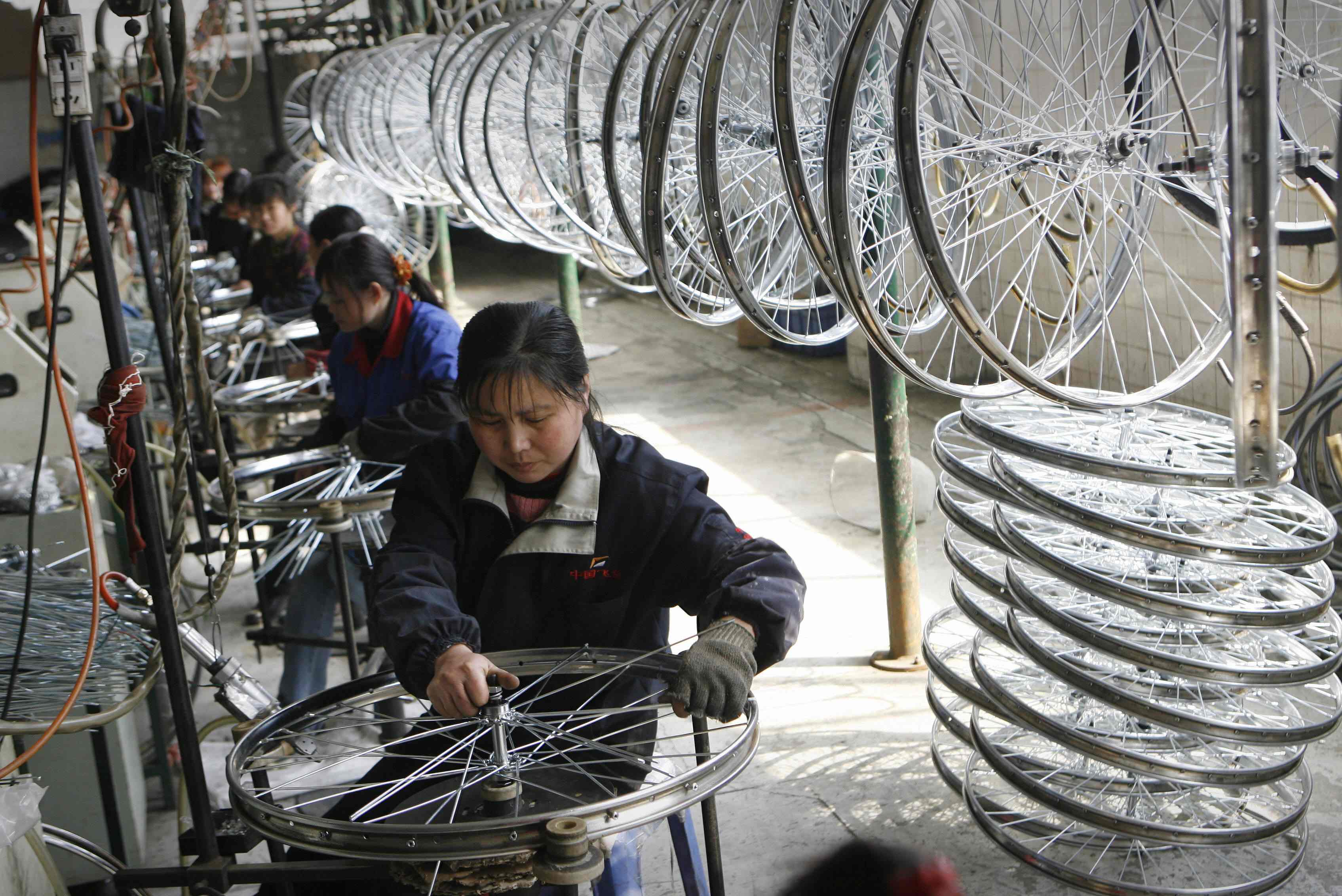
Business
16:26, 12-Sep-2017
Bike sharing employs 1 in every 100 new Chinese workers
Nicholas Moore

The bike sharing industry in China employs 100,000 people, with new jobs accounting for one percent of all new employment in China in the first six months of this year, according to a report published Saturday by China’s State Information Center.
The “Bike Sharing Industry Employment Research Report” revealed how a booming industry that merges technology, traditional manufacturing and research and development has ushered in a wave of new jobs across the country.

AFP Photo
AFP Photo
In July, the Ministry of Transport reported that there are now 70 bike sharing companies operating in China, with 130 million registered users riding 16 million bikes across the country.
With hundreds of millions of dollars invested into the industry, bike sharing is set to continue to grow – but debate remains over what it means for traditional manufacturers.
What was in the report?
The State Information Center says that of 7.17 million new jobs created in China in the first half of this year, 70,000 were in the bike sharing industry.
With a total workforce of 100,000, bike sharing employs 42,500 people in manufacturing, 35,000 to maintain bikes, and 5,000 workers handling distribution and logistics.
The remaining jobs are focused on high-tech side of the industry – 10,000 people alone work on the “smart locks” which have played a key role in the success of bike sharing, and 8,000 people operate the online platforms that give 130 million users access to the bikes.
What does it mean?
Bike sharing has become a major employer in a short space of time, for both blue collar and white collar workers. While the disruption caused by the bike-share boom is a challenge for authorities and traditional bicycle manufacturers, it has also presented new opportunities.
Last Thursday, Beijing became the latest city to ban new sharing bikes, over concerns that they were affecting traffic. The piles of bicycles left haphazardly across Chinese cities – often in a broken and damaged state – are now as ubiquitous as the workers organizing them into lines or collecting them for redistribution elsewhere.

A worker climbs onto a pile of ofo shared bicycles at a repair center in Beijing, April 6, 2017. /AFP Photo
A worker climbs onto a pile of ofo shared bicycles at a repair center in Beijing, April 6, 2017. /AFP Photo
With tighter regulations set to come into force, the number of people employed to maintain and redistribute the bikes will increase further. In Shanghai and Tianjin, local regulations that come into effect from October 1 state that there should be at least one worker for every 200 bicycles in operation.
How about traditional bike companies?
Employment may be up, but sales are down, giving old brands like Flying Pigeon and Forever no choice but to abandon their business models and adapt to the bike sharing revolution.
Flying Pigeon, which dates back to 1936, was one of the biggest bicycle brands in China in the 20th century, before seeing sales hit twice-over as China’s economy developed – first by the influx of cars as consumers swapped two wheels for four, and second by the current bike sharing boom.
2016 saw year-on-year bicycle production fall by five percent to 53 million bikes. Manufacturers are now increasingly working with bike sharing companies, with half of Flying Pigeon’s orders earlier this year coming from ofo, according to China Daily.
What happens when the boom cools down?
Workers’ Daily reported last week that in Beijing, half of bicycle stores closed in the first quarter of the year, with sales down by half. With more manufacturers losing customers and relying on the booming bike sharing industry for orders, brand names like Flying Pigeon – and the 150,000 employed in bicycle manufacturing – are at risk of being hurt if the bike-share bubble ever bursts.

Workers assemble wheels at the Flying Pigeon Bicycle factory in the northeastern city of Tianjin, 100km from the capital Beijing, March 28, 2007. /AFP Photo
Workers assemble wheels at the Flying Pigeon Bicycle factory in the northeastern city of Tianjin, 100km from the capital Beijing, March 28, 2007. /AFP Photo
Caixin reports that three shared bicycle firms have already gone out of business this year, and with at least 70 other companies operating, more are expected to throw in the towel.
Yu Yuefeng, managing director of Phoenix, China’s oldest bike manufacturer, told the Financial Times that while major bike sharing companies can survive a slowdown in production thanks to heavy financial backing from investors, bike manufacturers which run on already-tight profit margins could face bankruptcy.
With more cities likely to follow suit with Beijing and ban new shared bicycles, along with a cold winter season ahead in north China set to see a drop in users, production could fall sharply in the next few months, providing a major test to some of China’s most iconic bicycle brands.

SITEMAP
Copyright © 2018 CGTN. Beijing ICP prepared NO.16065310-3
Copyright © 2018 CGTN. Beijing ICP prepared NO.16065310-3